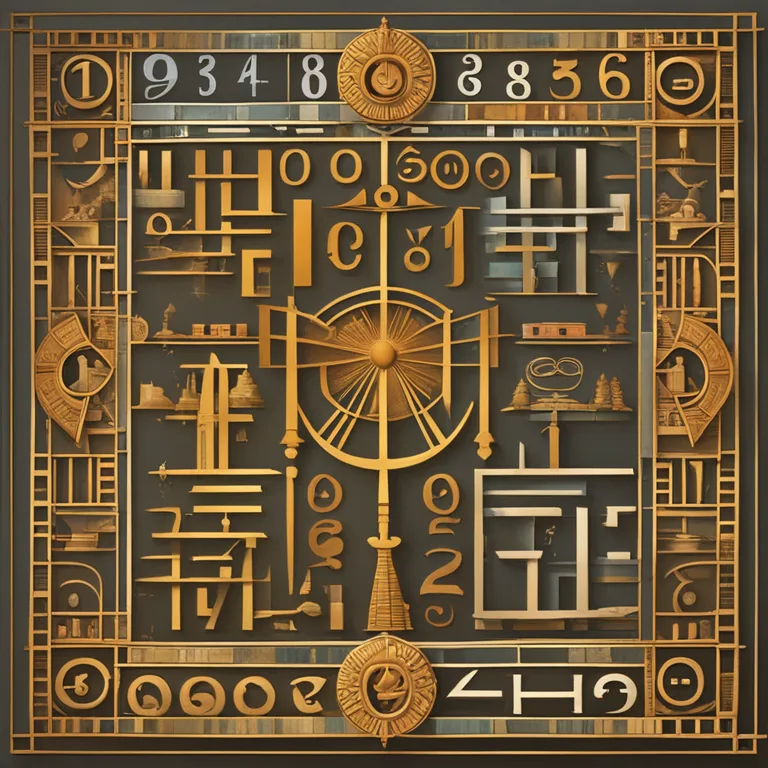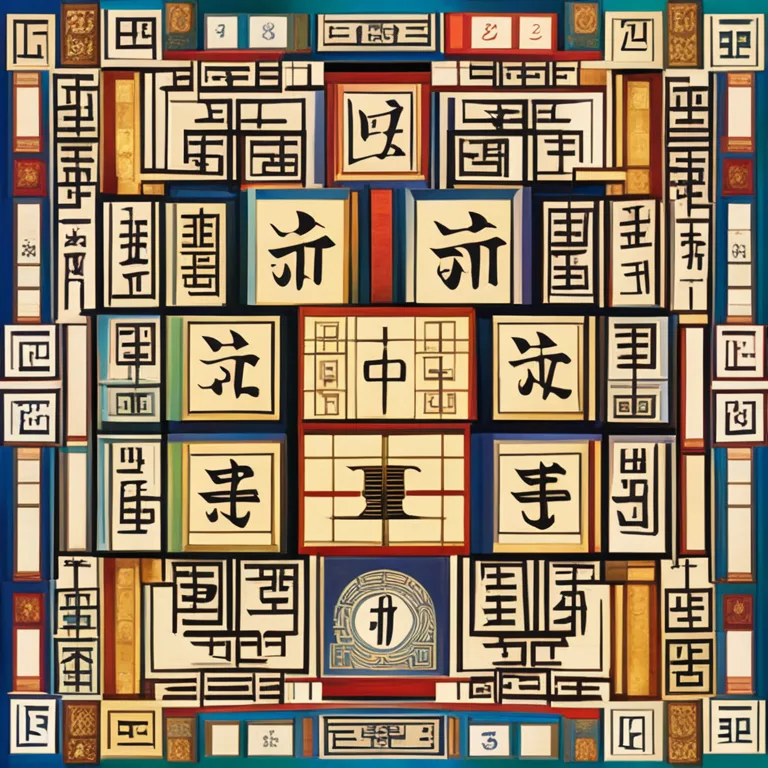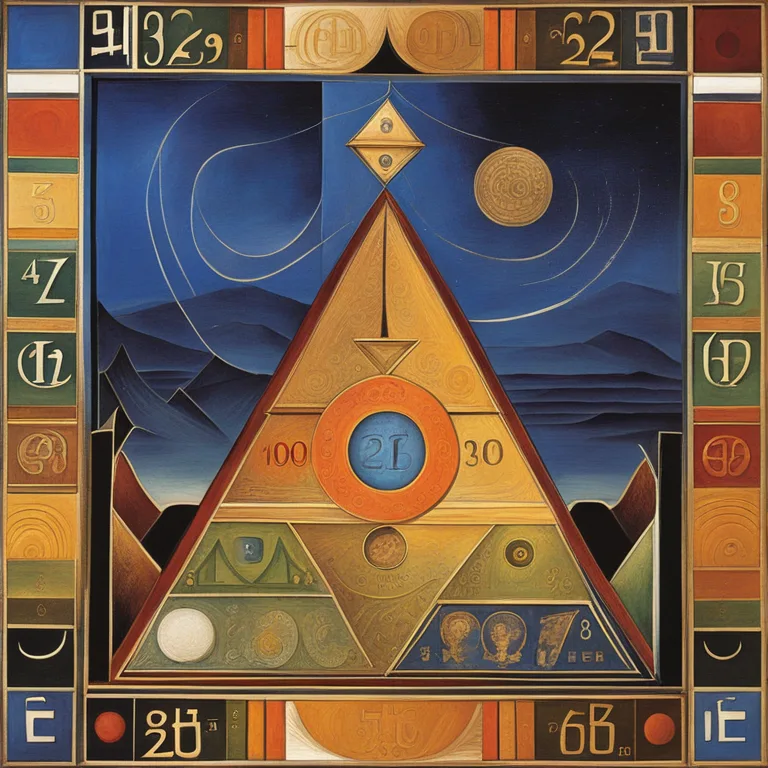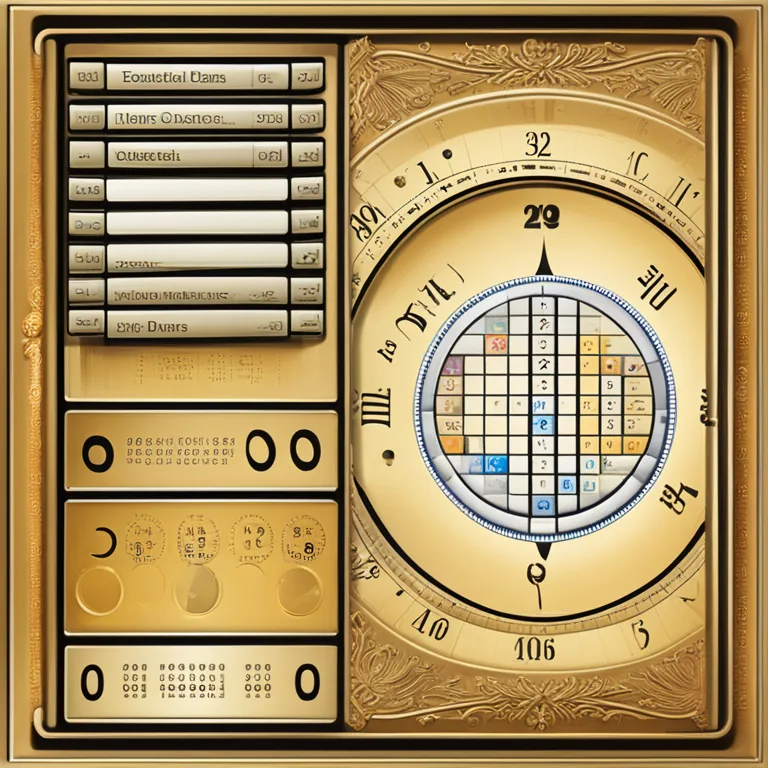
The Origins of Numerology Explained
The article traces the beginnings and development of numerology throughout various cultures and eras.
article by Sofia Ferguson
Ancient Roots and Evolution
Numerology, the mystical study of numbers and their influence on human life, is believed to have roots that date back thousands of years. The precise origin of numerology is difficult to pinpoint, as the use and significance of numbers have been important to many ancient civilizations across the globe. The Chaldeans of ancient Babylonia, for example, are often credited with early forms of numerology, focusing on the meanings of numbers related to their gods and cosmology. Similarly, the ancient Egyptians utilized numbers to organize their elaborate systems of measurement and to predict celestial events. Pythagoras, a Greek philosopher and mathematician who lived around 570-495 BCE, is commonly associated with the establishment of a more formalized numerology system. His teachings suggest that numbers held divine properties and that understanding them could provide insight into the moral universe. Pythagorean numerology, as it became known, formed the basis of many principles still used in contemporary numerology.

Numerology in Different Cultures
Throughout history, numerology has been adapted and integrated into various cultural beliefs and practices. In China, the I Ching, or Book of Changes, uses a form of numerology in its hexagrams and has been consulted for wisdom and prophecy for millennia. In Vedic traditions, certain numbers are considered especially auspicious or inauspicious, and these beliefs influence rituals and daily life. Additionally, Kabbalistic studies in Jewish mysticism make significant use of numerology, called Gematria, to find hidden meanings in the Torah. It is apparent that these disparate systems, although varying in method and application, share the foundational notion that numbers carry something beyond mere quantity—a metaphysical significance.

Modern Numerology's Rise
The 20th century witnessed a resurgence in interest in numerology, largely due to the works of L. Dow Balliett and Dr. Julian Stenton. Stenton is often credited with coining the term 'numerology' and was instrumental in bringing this ancient practice to the attention of the modern Western world. Balliett's teachings combined Pythagorean and Chaldean elements and set a standard for many contemporary interpretations of numbers and their meanings. Today, numerology continues to evolve with new theories and approaches, reflecting the era's growing interest in spirituality and self-discovery. It has solidified its place in the New Age movement, where it is frequently used alongside astrology, tarot, and other esoteric sciences.

Modern-Day Applications
In recent years, numerology has become accessible through technology, with online calculators and digital readings making it easier than ever to explore personal numerology charts. These charts often encompass life path numbers, destiny numbers, and soul urge numbers—each derived from one's birth date or name and providing different perspectives on personality and life events. The practice is used by individuals seeking direction or attempting to make sense of life's challenges. Moreover, numerology has grown beyond personal growth to include analyses in compatibility studies—both personal and business—and in picking auspicious dates for important events. The digital age has also spurred academic interest in numerology, with scholars examining its place within the context of cultural anthropology and mathematics.

Numerology's Enduring Significance
The staying power of numerology lies in its adaptability and the human tendency to seek patterns and meaning in life. Regardless of its ancient origins, numerology offers something timeless—a sense that the universe operates on an ordered system and that, through these numbers, individuals can tap into that larger, cosmic framework. It serves as a bridge between the scientific and the spiritual, providing a personalised roadmap that many find empowering and illuminating. As we continue to advance in the 21st century, it is likely that numerology will persist, morphing and intertwining with new cultural paradigms while retaining its core essence that captivated our ancestors.
Published: 12/21/2023
Modified: 12/21/2023
More predictions
Come back here soon to learn more about yourself and your future


Insights for Personal Year 2 in Numerology
Discover the resonances and potential of Personal Year 2 in numerology, guiding personal growth and relationships.


The Mystique of Name & Birth Numerology
Discover how your name and birthdate reveal your unique numerological profile and life path through the ancient practice of numerology.


The Origins of Numerology
Tracing the Roots and Founding Minds Behind Numerology